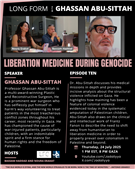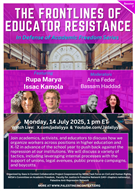[The following is a summary of an event held on 11 February 2016, in the UK House of Commons, organized by the Bahrain Institute for Rights and Democracy (BIRD) in cooperation with Reprieve, Index on Censorship, and the LSE Middle East Society, to discuss the UK Foreign Office’s technical assistance to Bahrain.]
The discussion was led by the Liberal Democrats Foreign Affairs Spokesperson Tom Brake MP, Academic and Co-Founder of Bahrain Watch Dr. Ala’a Shehabi, CEO of Index on Censorship Jodie Ginsberg, the Deputy Director of the Death Penalty program at Reprieve, Harriet McCulloch and the Director of Advocacy at BIRD, Sayed Ahmed Alwadaei.
Tom Brake MP, who chaired the panel, opened the discussion by criticizing the government’s recent prioritization of trade and economic affairs above human rights in the Gulf. He pointed to the appalling inconsistencies within a British government that claims that it is committed to fighting the use of the death penalty and yet has not made any efforts to address the issue in Bahrain. Mr. Brake has recently questioned the FCO on these priorities, namely the effectiveness of its spending on Bahrain amidst the continuation of systemic torture.
Harriet McCulloch then built upon Mr. Brake’s point, highlighting the UK government’s ambiguous response to the recent mass execution in Saudi Arabia and the potentially fatal consequences that this attitude might have for the young men currently on death row in Bahrain. She explained how these individuals had been targeted as a response to their dissenting political views and had been victims of highly opaque and unfair trials. Ms. McCulloch also commented on the UK government’s technical and practical assistance program in Bahrain that funds and trains two institutional bodies that operate within this flawed criminal justice system. She contended that the UK needed to use its leverage on Bahrain to make representations on behalf of those on death row and that the FCO needed to be more transparent with the millions of British tax payer money going to Bahrain.
Jodie Ginsberg focused on the Bahraini authorities’ increasingly violent clamp down upon freedom of expression. She explained how journalists could be imprisoned for criticizing the king, with the issue of National Security being used as an ambiguous justification for the detention of dissenters. Ms. Ginsberg was highly critical of the UK government’s statement that the Bahraini authorities were moving in the right direction, pointing to the cases of Nabeel Rajab who was jailed for speaking out publicly against the regime, and Abduljalil al-Singace who is serving a life sentence for leading peaceful protests and campaigning for democracy in Bahrain. She finished by urging the UK government to clarify how genuine it’s stated commitment to the flourishing of democracy in Bahrain really is.
Sayed Ahmed Alwadaei, provided insight into the events of 2011 in Bahrain. He explained how protests in the region reflected the frustration of the Arab people towards their governments and their future. Mr. Alwadaei emphasized that five years on the situation has not improved and that the UK’s funding of the Bahraini institutions that have perpetuated authoritarian control over the Bahraini people, and their positive reviews of the human right situation, is absurd.
Dr. Ala’a Shehabi, reiterated the importance of remembering and channeling the original spirit of the activists who took to the street five years ago. She noted how the Saudi intervention in Bahrain had set a precedent for what was to come in the region: the fracturing of the state, the increased sectarianism, and the polarization of the Arab population. Dr. Shehabi drew attention to 2016 marking the two hundredth anniversary of British-Bahraini relations, an opportunity to reflect upon a sad state of affairs.
Andy Slaughter MP, Labour’s Shadow Minister for Human Rights, also delivered an intervention. Mr. Slaughter mentioned Bahrain’s manipulation of it’s Human Rights rhetoric and its practice of deflecting criticism of it’s repressive actions against it’s own population. He went on to champion the individuals and organizations that were taking a stand against repression and must enable them to continue to do so through our own efforts.
![[Bahraini Protestors in Pearl Roundabout, 2011. Image from wikimedia.org]](https://kms.jadaliyya.com/Images/357x383xo/lulu.jpeg.jpg)

















